第51章 IX (2)
To be brief, besides Hepzibah's disadvantages of person, there was an uncouthness pervading all her deeds; a clumsy something, that could but ill adapt itself for use, and not at all for ornament.
She was a grief to Clifford, and she knew it. In this extremity, the antiquated virgin turned to Phoebe. No grovelling jealousy was in her heart. Had it pleased Heaven to crown the heroic fidelity of her life by making her personally the medium of Clifford's happiness, it would have rewarded her for all the past, by a joy with no bright tints, indeed, but deep and true, and worth a thousand gayer ecstasies. This could not be. She therefore turned to Phoebe, and resigned the task into the young girl's hands. The latter took it up cheerfully, as she did everything, but with no sense of a mission to perform, and succeeding all the better for that same simplicity.
By the involuntary effect of a genial temperament, Phoebe soon grew to be absolutely essential to the daily comfort, if not the daily life, of her two forlorn companions. The grime and sordidness of the House of the Seven Gables seemed to have vanished since her appearance there; the gnawing tooth of the dry-rot was stayed among the old timbers of its skeleton frame;the dust had ceased to settle down so densely, from the antique ceilings, upon the floors and furniture of the rooms below,--or, at any rate, there was a little housewife, as light-footed as the breeze that sweeps a garden walk, gliding hither and thither to brush it all away. The shadows of gloomy events that haunted the else lonely and desolate apartments; the heavy, breathless scent which death had left in more than one of the bedchambers, ever since his visits of long ago,--these were less powerful than the purifying influence scattered throughout the atmosphere of the household by the presence of one youthful, fresh, and thoroughly wholesome heart. There was no morbidness in Phoebe; if there had been, the old Pyncheon House was the very locality to ripen it into incurable disease. But now her spirit resembled, in its potency, a minute quantity of ottar of rose in one of Hepzibah's huge, iron-bound trunks, diffusing its fragrance through the various articles of linen and wrought-lace, kerchiefs, caps, stockings, folded dresses, gloves, and whatever else was treasured there. As every article in the great trunk was the sweeter for the rose-scent, so did all the thoughts and emotions of Hepzibah and Clifford, sombre as they might seem, acquire a subtle attribute of happiness from Phoebe's intermixture with them. Her activity of body, intellect, and heart impelled her continually to perform the ordinary little toils that offered themselves around her, and to think the thought proper for the moment, and to sympathize,--now with the twittering gayety of the robins in the pear-tree, and now to such a depth as she could with Hepzibah's dark anxiety, or the vague moan of her brother. This facile adaptation was at once the symptom of perfect health and its best preservative.
A nature like Phoebe's has invariably its due influence, but is seldom regarded with due honor. Its spiritual force, however, may be partially estimated by the fact of her having found a place for herself, amid circumstances so stern as those which surrounded the mistress of the house; and also by the effect which she produced on a character of so much more mass than her own. For the gaunt, bony frame and limbs of Hepzibah, as compared with the tiny lightsomeness of Phoebe's figure, were perhaps in some fit proportion with the moral weight and substance, respectively, of the woman and the girl.
To the guest,--to Hepzibah's brother,--or Cousin Clifford, as Phoebe now began to call him,--she was especially necessary.
Not that he could ever be said to converse with her, or often manifest, in any other very definite mode, his sense of a charm in her society. But if she were a long while absent he became pettish and nervously restless, pacing the room to and fro with the uncertainty that characterized all his movements; or else would sit broodingly in his great chair, resting his head on his hands, and evincing life only by an electric sparkle of ill-humor, whenever Hepzibah endeavored to arouse him. Phoebe's presence, and the contiguity of her fresh life to his blighted one, was usually all that he required. Indeed, such was the native gush and play of her spirit, that she was seldom perfectly quiet and undemonstrative, any more than a fountain ever ceases to dimple and warble with its flow. She possessed the gift of song, and that, too, so naturally, that you would as little think of inquiring whence she had caught it, or what master had taught her, as of asking the same questions about a bird, in whose small strain of music we recognize the voice of the Creator as distinctly as in the loudest accents of his thunder. So long as Phoebe sang, she might stray at her own will about the house. Clifford was content, whether the sweet, airy homeliness of her tones came down from the upper chambers, or along the passageway from the shop, or was sprinkled through the foliage of the pear-tree, inward from the garden, with the twinkling sunbeams. He would sit quietly, with a gentle pleasure gleaming over his face, brighter now, and now a little dimmer, as the song happened to float near him, or was more remotely heard. It pleased him best, however, when she sat on a low footstool at his knee.